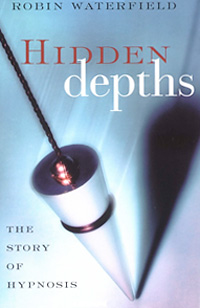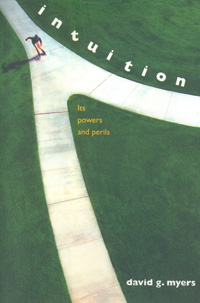Surprising new research shows that crowds are often smarter than individuals
In 2002 I served as the “phone a friend” for the popular television series Who Wants to Be a Millionaire. When my acquaintance was stumped by a question, however, he elected to “poll the audience” instead. His choice was wise not only because I did not know the answer but because the data show that the audience is right 91 percent of the time, compared with only 65 percent for “experts.”
Although this difference may in part be because the audience is usually queried for easier questions, something deeper is at work here. For solving a surprisingly large and varied number of problems, crowds are smarter than individuals. This is contrary to what the 19th-century Scottish journalist Charles Mackay concluded in his 1841 book, Extraordinary Popular Delusions and the Madness of Crowds, a staple of skeptical literature: “Men, it has been well said, think in herds. It will be seen that they go mad in herds, while they only recover their senses slowly, and one by one.” This has been the dogma ever since, supported by sociologists such as Gustave Le Bon, in his classic work The Crowd: A Study of the Popular Mind: “In crowds it is stupidity and not mother wit that is accumulated.” (continue reading…)
Comments Off on Common Sense
Francis Bacon and experimental psychologists show why the facts in science never just speak for themselves
In the first trimester of the gestation of science, one of science’s midwives, Francis Bacon, penned an immodest work entitled Novum Organum (“new tool,” after Aristotle’s Organon) that would open the gates to the “Great Instauration” he hoped to inaugurate through the scientific method. Rejecting both the unempirical tradition of scholasticism and the Renaissance quest to recover and preserve ancient wisdom, Bacon sought a blend of sensory data and reasoned theory.
Cognitive barriers that color clear judgment presented a major impediment to Bacon’s goal. He identified four: idols of the cave (individual peculiarities), idols of the marketplace (limits of language), idols of the theater (preexisting beliefs) and idols of the tribe (inherited foibles of human thought). (continue reading…)
read or write comments (1)
Perceptual-blindness experiments challenge the validity of eyewitness testimony and the metaphor of memory as a video recording
Picture yourself watching a one-minute video of two teams of three players each. One team wears white shirts and the other black shirts, and the members move around one another in a small room tossing two basketballs. Your task is to count the number of passes made by the white team — not easy given the weaving movement of the players. Unexpectedly, after 35 seconds a gorilla enters the room, walks directly through the farrago of bodies, thumps his chest and, nine seconds later, exits. Would you see the gorilla?
Most of us believe we would. In fact, 50 percent of subjects in this remarkable experiment by Daniel J. Simons of the University of Illinois and Christopher F. Chabris of Harvard University did not see the gorilla, even when asked if they noticed anything unusual (see their paper “Gorillas in Our Midst”). The effect is called inattentional blindness. When attending to one task — say, talking on a cell phone while driving — many of us become blind to dynamic events, such as a gorilla in the crosswalk. (continue reading…)
read or write comments (1)
A review of Robin Waterfield’s Hidden Depths: The Story of Hypnosis.
In the early 1980s I began a personal odyssey into altered states of consciousness. Because I thought I might like to use my brain again, I eschewed mind-altering substances and instead opted for (continue reading…)
read or write comments (15)
A review of David G. Myers’ Intuition: It’s Powers and Perils.
Imagine yourself a contestant on the classic television game show Let’s Make a Deal. You must choose one of three doors, behind one of which is a brand new automobile (while the other two harbor goats). You choose door number one. Host Monty Hall, who knows what is behind all the doors, shows you what’s behind door number two, a goat, then inquires: would you like keep the door you chose or switch? It’s 50/50 so it doesn’t matter, right? (continue reading…)
read or write comments (7)






